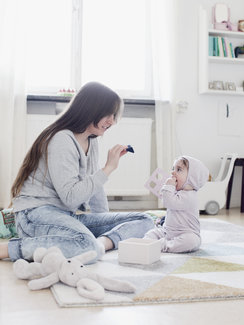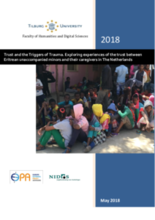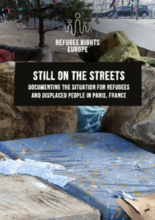

Displaying 141 - 150 of 237
This report focuses on trust relations of Eritrean minors who arrived without the company of their parents to The Netherlands and the people who are taking care of them.
Drawing upon in‐depth interviews with 12 parents of adolescent girls with multiple and complex needs in residential child welfare, this exploratory study describes parents' own needs and preferences with regard to care delivery.
The study consisted of a comparative follow-up study with a pretest-posttest design which explored the association between baseline child, family, and care characteristics and the psychosocial development of 121 schoolaged Dutch children during their first year of placement in foster care (FC), family-style group care (FGC), and residential care (RC).
This study aims to facilitate further identification of the consequences of parental burnout for the parents themselves, their spouses and their child(ren).
Based on an analysis of the evolutions in the way the care structures for unaccompanied minors were set up in Belgium, the authors of this article critically reflect on the underlying rationales that justify the particularities of these structures, hereby also reflecting about the implications of these rationales for professionals and researchers.
In this study, the participation of children in the Dutch child protection system (CPS) under the new Youth Act 2015 is critically analyzed.
This study provides an overview of the situation faced by unaccompanied minors in Germany.
In this study, the participation of children in the Dutch child protection system (CPS) under the new Youth Act 2015 is critically analyzed.
This study answers the following question: “How does the case-specific context influence the practitioners' decision-making process regarding matching in family foster care?”



